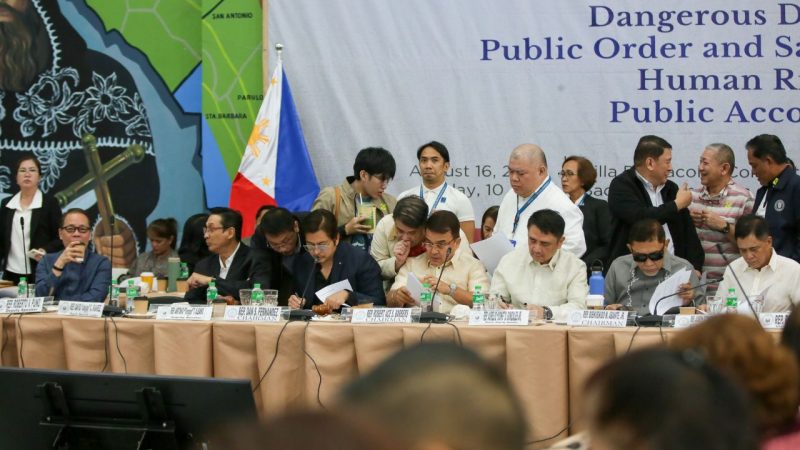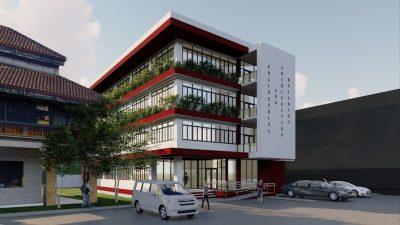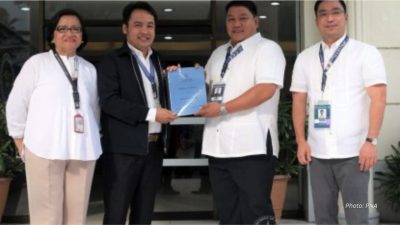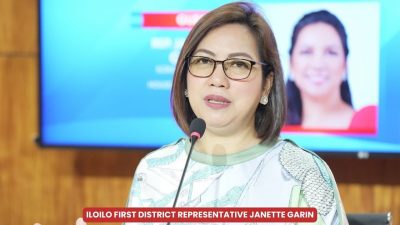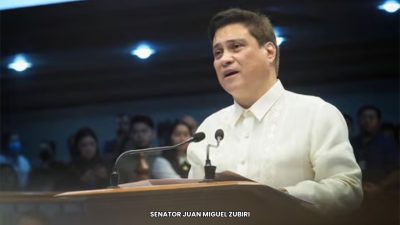By Junex Doronio
MANILA – The bloody war on drugs and extrajudicial killings during the Duterte administration contributed to an increase in crimes nationwide, according to two leading members of the House Quad Comm on Wednesday (30 Oct 2024).
House Quad Comm Co-Chair Rep. Dan Fernandez of Laguna and Lead Chair Rep. Robert Ace Barbers of Surigao del Norte responded to former President Rodrigo Duterte’s claim that crime rates are higher now than when he was in office.
Fernandez, Chair of the House Committee on Public Order and Safety, said official Philippine National Police (PNP) data does not support Duterte’s assertion.
“Nabudol na naman tayo. Malinaw na mas mababa ang krimen ngayon kumpara noong panahon ng dating administrasyon,” Fernandez said.
According to Fernandez, PNP reports indicate a significant drop in index crimes from July 1, 2022, to July 28, 2024, totaling 83,059 cases compared to 217,830 during the same period in Duterte’s first two years (2016-2018)—a 61.87 percent decrease.
The report highlights a 55.69 percent decrease in violent crimes such as murder, homicide, physical injuries, and rape. Robbery, theft, car theft, and other property crimes also dropped by 66.81 percent, down to 41,420 cases from 124,799 during the same comparative period.
Crime clearance efficiency rose by 27.13 percent, and the crime solution efficiency rate increased by 10.28 percent, Fernandez said, citing the PNP.
Barbers, Chair of the House Committee on Dangerous Drugs, noted that the PNP has also reported drug seizures worth ₱35.6 billion and the arrest of 122,309 drug suspects.
Both Barbers and Fernandez highlighted that the Marcos administration’s campaign against illegal drugs contrasts with Duterte’s approach, describing it as “bloodless.”
“The present national leadership values and respects the sanctity of life,” Barbers said.
Fernandez added that the current anti-drug drive “doesn’t incite anger, resentment, or a desire for revenge among the public.”
“It focuses on apprehending suspects and rehabilitating them, rather than ‘neutralizing’ them,” he said, referring to the term often associated with Duterte’s anti-drug campaign.
Retired senior police officers recently testified before Quad Comm, explaining that terms like “neutralize” and “negate,” used by Duterte’s former PNP chief and now Sen. Ronaldo “Bato” dela Rosa in a 2016 command circular, included killing suspects.
Barbers claimed that Duterte’s hardline drug war inadvertently led to more crime.
“Ang isang action ay may kasunod na reaction. Kapag pinatay mo ang isang drug suspect, lalo na kung nadamay pa ang inosenteng kamag-anak o civilian, malamang sa hindi, may maghahangad sa pamilya ng namatayan ng paghihiganti,” he said.
“Hindi ka nakakatugon sa problema; sa halip, nagdudulot ka pa ng bago,” he added.
Fernandez criticized Duterte’s drug war for focusing on low-level users and street dealers, with minimal impact on high-value targets.
“Kaya libo-libo ang napatay, mahigit 20,000, halos lahat users lang na puwedeng ma-rehabilitate. Hindi naman tinamaan ‘yung malalaking drug lord,” he said.
He added that rumors persisted of high-value targets being taken down only to remove competition, citing a 2018 case linking Duterte’s family members to a major drug shipment.
Former Customs agent Jimmy Guban testified to the Quad Comm, claiming that Duterte’s son, then Davao City Congressman Paolo Duterte; his son-in-law, Manases Carpio; and his economic adviser, Chinese national Michael Yang, were allegedly behind an ₱11-billion drug shipment seized in Cavite.
Barbers also pointed out that many criminal syndicates exposed under the Marcos administration originated during Duterte’s term. He cited the P6.3-billion shabu bust in a Pampanga warehouse in September 2023, allegedly connected to Chinese nationals linked to Yang.
“This crime gang that flourished during the previous administration still casts a shadow over the current leadership’s efforts to curb criminal activities,” Barbers concluded.
ia/mnm

